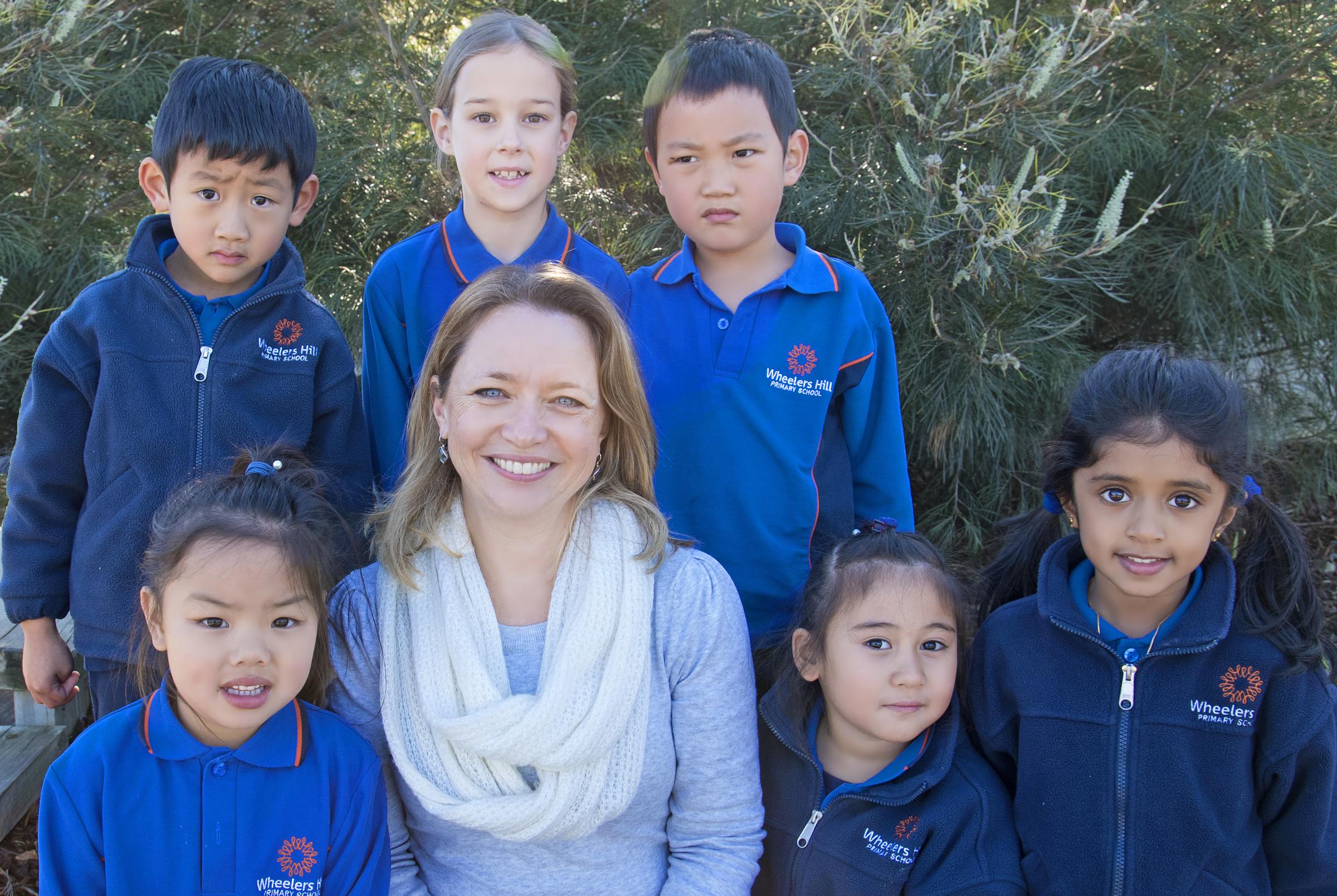Assistant Principal
Katrina Spicer - Wellbeing and Inclusion

Assistant Principal
Katrina Spicer - Wellbeing and Inclusion
Strongly underlying all of the WHPS wellbeing programs are our five school values:










Our SWPBS (School-Wide Positive Behaviour Support) program is based upon these values, and each of our expected behaviours is connected to one of these values. The values are proudly displayed in many areas around the school and our students pledge allegiance to them during our school assemblies.
I am proud of my school and Australia my home
I will care for my belongings and the environment
I will be honest and responsible
I will show respect towards others and accept their differences
These values will help me be a resilient member of my community
Every Friday afternoon at Assembly, members of the SRC (Student Representative Council) will draw a winner of the WHPS Values Award.
Students are encouraged to identify another student who has demonstrated one or more of our school values and to nominate them for the values award. Students complete a nomination slip and place it in the box in the corridor opposite the sick bay. The student whose name is drawn from the nomination box will take home a special Values Award certificate and a special WHPS school badge, which they can wear proudly on their uniform.






Katrina Spicer
Assistant Principal for Wellbeing and Inclusion
katrina.spicer@education.vic.gov.au


By Dr Justin Coulson
We all want our children to be happy and successful at school. We focus on their grades, their friendships, and their extra-curricular activities. But what if I told you that one of the most important factors for their wellbeing, both now and in the future, is their sense of belonging?
A fascinating new study from Monash University has shed light on the profound impact of school belonging o long-term mental health. Associate Professor Kelly-Ann Allen, the lead researcher, followed over 1500 individuals from adolescence to adulthood, examining the link between their feelings of connection at school and their mental wellbeing later in life.
The findings were striking: those who felt a strong sense of belonging in high school experienced fewer mental health challenges in their twenties. This connection was evident even after accounting for other factors like academic achievement and family relationships. In other words, feeling like you fit in, that you matter, that you're part of the school community, has a lasting positive impact on your mental health.
Why does belonging matter so much?
Think back to your own school days. Remember that feeling of walking into a classroom where you felt welcomed, valued, and supported? Or perhaps you recall the opposite - the sinking feeling of being an outsider, of not quite fitting in. These experiences shape not only our immediate wellbeing but also our long-term sense of self and our ability to navigate social and emotional challenges.
When children feel like they belong, they're more likely to:
So, how can we, as parents, foster a sense of belonging for our children?
Partner with the school:
Nurture connections at home:
Champion their interests:
The Bottom Line:
School belonging isn't just about feeling happy and comfortable in the classroom; it's a crucial ingredient for long-term mental health and wellbeing. By partnering with the school, nurturing connections at home, and championing our children's interests, we can help them build a strong foundation for a happy, healthy and fulfilling life.
Emotional Regulation - A Heart-Centred Approach to Supporting Your Child
Meltdowns, outbursts, and challenging behaviours can leave us feeling lost and unsure how to help. It’s tough when our kids are struggling with big emotions! What we sometimes forget is that these behaviours usually stem from overwhelming feelings that our children don’t yet have the tools to manage.
Emotional Regulation is Dr Justin Coulson’s powerful guide to helping children understand and regulate their emotional world. Once they develop competence with this critical life skill, emotionally intelligent children will feel more confident, perform better at school, have healthier relationships with others, and even be physically healthier.
This presentation will equip parents with a five-step “emotion coaching” process that brings together the very best in emotional intelligence research from Dr John Gottman, the Yale Centre for Emotional Intelligence, and others, to build children’s resilience, increase wellbeing for the whole family, and develop healthier humans.
WHPS families can access this webinar via the Happy Families School Subscription.
Our school subscription to Happy Families allows access to the Happy Families website to all members of our school community.
Families can access the Happy Families website at: https://schools.happyfamilies.com.au/login/whps
Password: happywhps